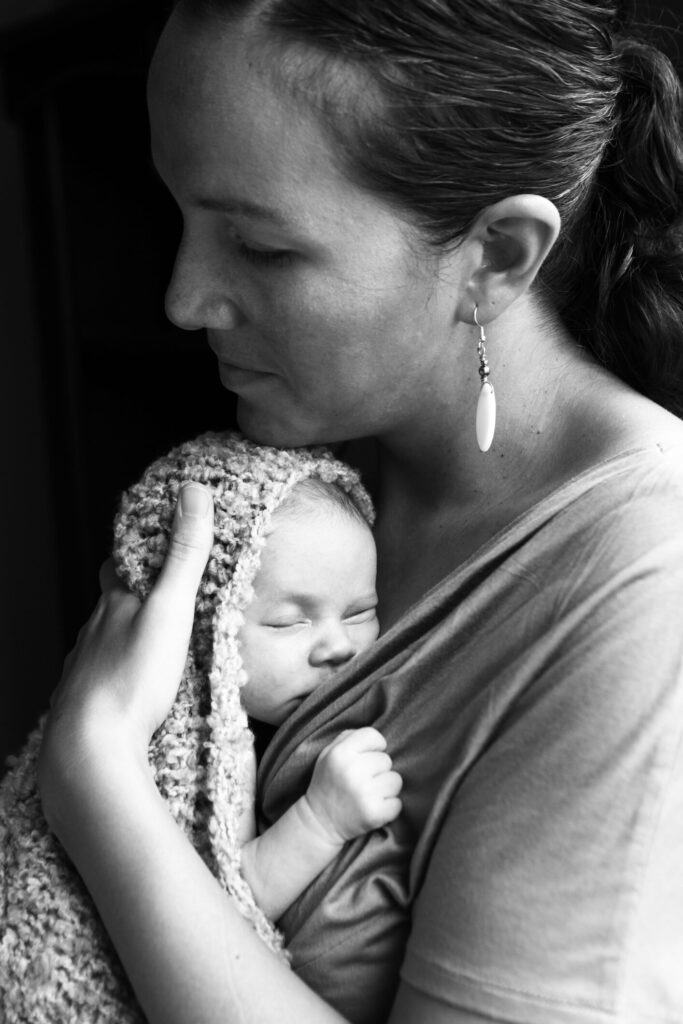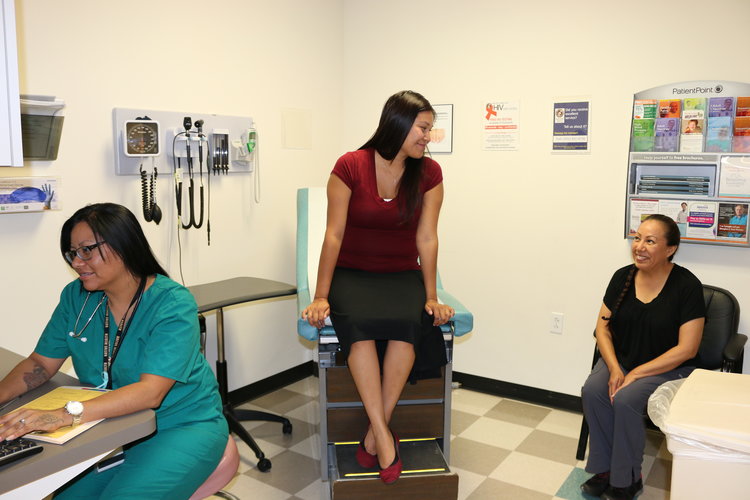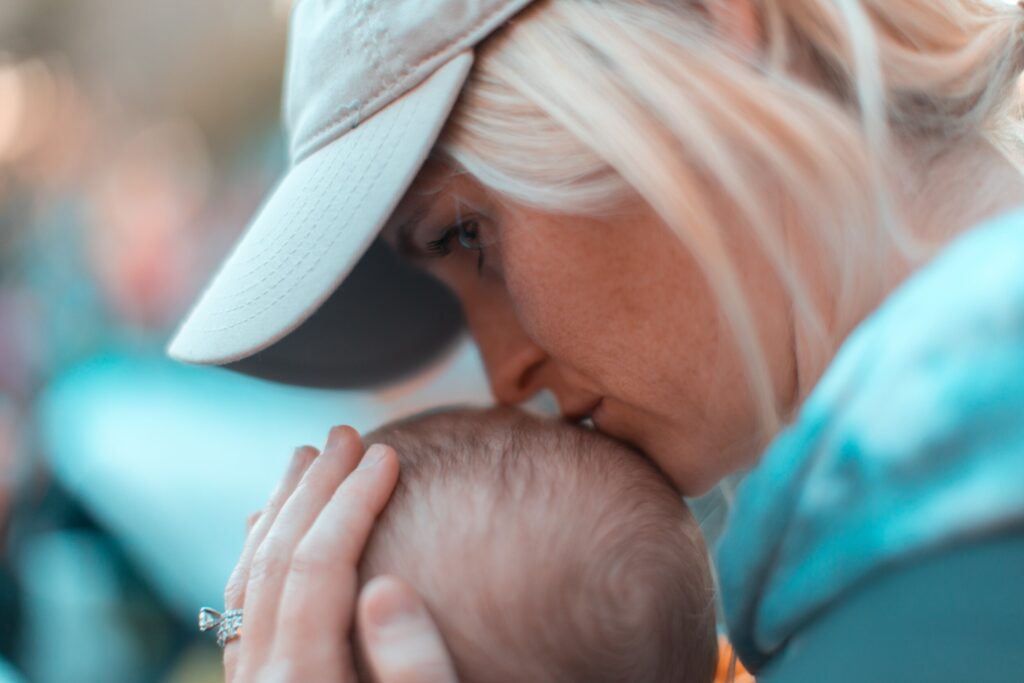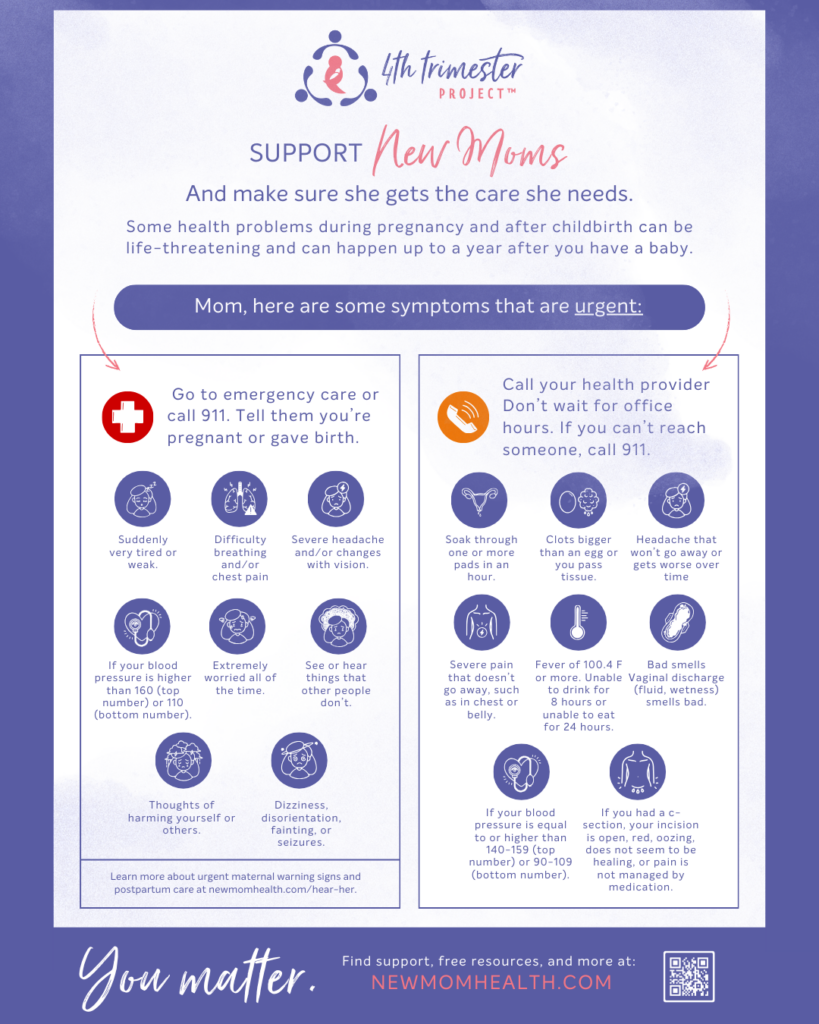
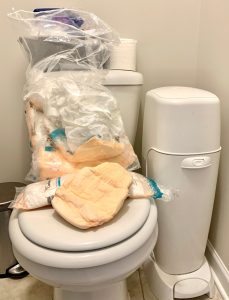
Bleeding after birth, (often called lochia), is a normal part of recovery. Quarter-sized blood clots are common the first few days. At 10-14 days after birth, many women notice a brief increase in bleeding. That’s thought to be a scab over the place where the placenta was attached to the uterus coming off. Most moms have some red, brown, then yellow discharge for 4-6 weeks after birth, but women can bleed for as little as two days or as long as 90 days. Even women who deliver their baby by a c-section will still experience vaginal bleeding as part of recovery. The amount of bleeding should steadily decrease over the first few weeks. If you are concerned about the amount of bleeding you’re experiencing, talk to a provider right away and get seen!
When to call your provider
If you experience so much bleeding that you must change your pads every hour or pass a clot larger than a golf ball, call your provider right away. If the blood has a bad odor or you have a fever and chills, you should call your healthcare provider right away. This could be a sign of an infection or a retained piece of placenta. This is considered an urgent maternal health warning sign.
It is important to know before you leave your birthing center if you hemorrhaged during birth. The provider should inform you about follow-up and checking up at a visit in the coming day(s).
Managing Bleeding After Childbirth
- Pay attention to how much you are bleeding especially in the first week – if you are bleeding a lot call your provider right away and let them know how many pads you are using in an hour.Make sure you have plenty of large and absorbent pads at home. Many women suggest selecting a pad with wings. If resources are a problem, ask for extra pads at the hospital. Your local diaper bank may be able to help you and your baby with supplies.
- Tampons are not recommended as they are not absorbent enough, are a potential source of infection, and may be very uncomfortable after a vaginal birth.
- Squirt bottles (peribottles) with warm water can help keep this area clean.
- Sometimes birth control, especially the shot (Depo Provera), can cause heavy bleeding which tends to improve over time. If you received this and are unsure if your heavy bleeding is from the Depo Provera, call your provider for guidance.
- Most women will have their first cycle within 7 to 9 weeks after birth. Nursing mothers frequently start menstrual periods by 12 weeks, but some mothers don’t start their periods until they have stopped breastfeeding. Egg production may return before the first menstrual period, which means you can become pregnant again.
- It’s hard to know when bleeding will stop. To cut down on laundry, don’t wear light colored bottoms – stick with dark skirts and pants for the first month or so after birth.
You know your body. If something doesn’t seem right, get help. Make sure you talk to a provider and tell them you have given birth.
Read more about the urgent maternal health warning signs and who to contact if something isn’t right.



